Mustafa Dawood: Brother's questions after immigration raid death
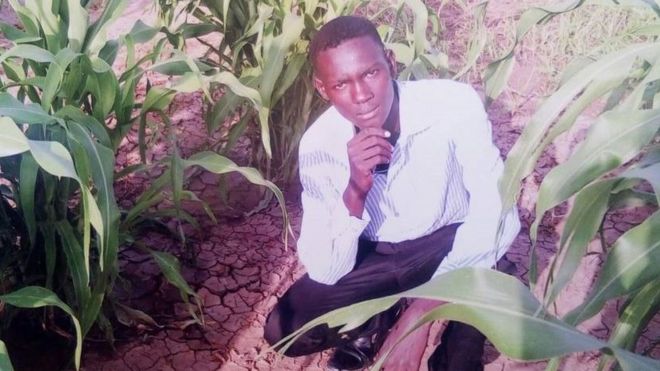 ABDALAZIZ OSMAN
ABDALAZIZ OSMAN
In June 2018, Mustafa Dawood died after falling through a factory roof while running away from immigration officers. It was a brutal end to a short life - one that had already seen him flee war in Sudan and make a perilous journey across Europe eventually settling in south Wales. So why did Mustafa die, and why are politicians and campaign groups now clamouring for justice?
It was early morning at the Shaftesbury Hand Car Wash in Newport and already a queue was forming.
Drivers eager to get back on the road stood around drinking coffee and chatting as a team of workers cleaned and jet-washed their vehicles.
But according to a witness, at half past nine, the banal scene came to an abrupt halt with the loud screech of tyres as a marked white van spun into the compound.
The Home Office said their immigration enforcement "acted on intelligence".
As it came to a stop, the doors were flung open and a team of immigration officers emerged. The car wash staff scattered in all directions.
One of them was Mustafa Dawood, working illegally while awaiting a decision on his asylum application.
Panicked, he dropped his tools and ran.
Scrambling up a ladder, he climbed on to the roof of a neighbouring factory.
Seconds later, a loud crash and Mustafa fell.
He plummeted 40ft or so to the ground beneath.
The Home Office said they then promptly suspended their operation.
Horrified onlookers watched while immigration officers made frantic attempts to save him.
He was rushed by ambulance to Cardiff's University Hospital of Wales.
But it was to no avail.
This was Saturday, 30 June 2018. And at the age of 23, Mustafa was dead.
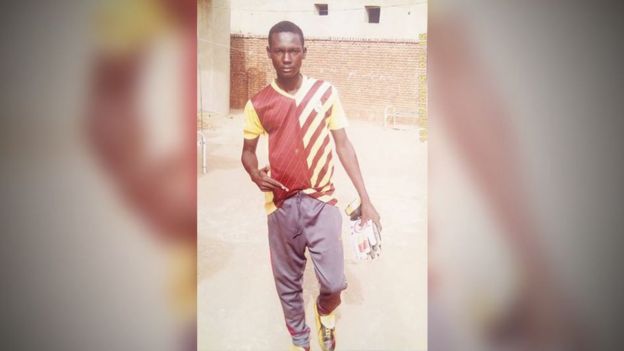 ABDALAZIZ OSMAN
ABDALAZIZ OSMAN
It was a life that ended roughly 3,000 miles (4,800km) away from his birth place in Al-Fashir, a small city and the capital of the North Darfur state in Sudan.
A dry, dusty place, and one without many opportunities compared with the Western world, still it provided a happy home for Mustafa's childhood.
Brought up by his parents, the middle of six children - four brothers and two sisters - from a young age he worked with his father, helping out in his shop and riding in the back of his lorry.
But his main passion was football, leading to the nickname Casillas after a Real Madrid goalkeeper.
His brother Ahmed Dawood said: "Mustafa liked to play soccer, and he had a lot of friends.
"If you see his Facebook page, he has a thousand or more friends.
"He was a happy child, full of happiness. And he was loved by everybody."
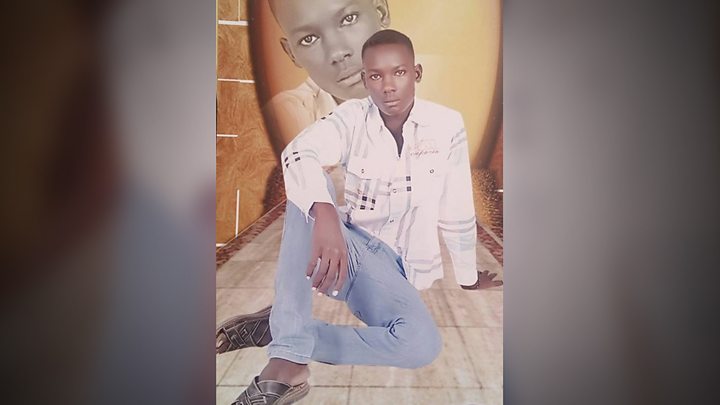
But in February 2003, war came to Darfur, with the Sudan Liberation Army and Justice Equality Movement fighting the government, which they accused of oppressing the black African, non-Arab population.
The government began a campaign of ethnic cleansing against Darfur's non-Arabs, including those of the Zaghawa tribe, to which Mustafa's family belonged.
Ahmed said: "Everyone left.
"People tried to come to Europe. A lot of people came.
"Mustafa left because of the war. He wasn't happy, his future wasn't there.
"He was looking for a safe place, he was looking for his future."
Ahmed himself left Darfur in 2011, but it took Mustafa a few years to follow, setting out as a teenager.
It is believed he made the difficult journey north to Egypt, then across the perilous Mediterranean Sea to Italy, France, then through Calais to the UK.
Arriving in early 2015, he claimed asylum and set about beginning his new life in Southampton where his cousin Abdalaziz Osman already lived.
Abdalaziz had been granted asylum in 2001, and had subsequently set up a security firm employing more than 100 people.
He said: "Mustafa wasn't allowed to work, but friends gave him money.
"He was such a friendly, likeable man, willing to live and learn.
"He improved his English. He never drank, never smoked, never went to nightclubs.
"He was a very special guy. I have never seen a young adult like that."
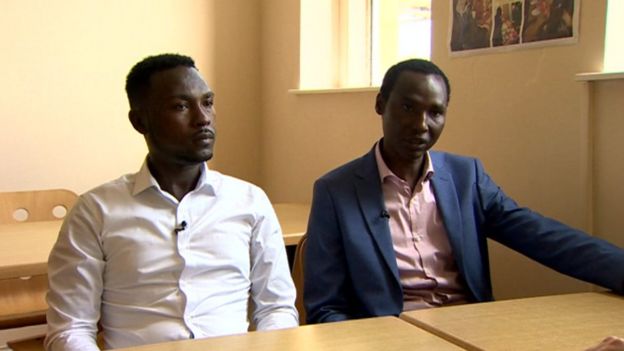
Despite his family members already being granted asylum, Mustafa's case was not straightforward.
The Home Office did not believe he was from the Zaghawa tribe and his asylum application was rejected.
Abdalaziz said: "When his case was rejected, I went to court. I attended as a witness with another three people from the community.
"We told them he is from Sudan and our community and tribe."
Still Mustafa's case was rejected.
Abdalaziz added: "We went to another solicitor and waited to get access to an expert to prove he was from Darfur.
"Mustafa waited almost two years for this expert to write a report, and still the Home Office rejected it.
"The expert wrote to the Home Office telling them they were wrong and asking them to look again at their position.
"The Home Office was still considering his case. They put it on hold and had not made a final decision. Then he died."
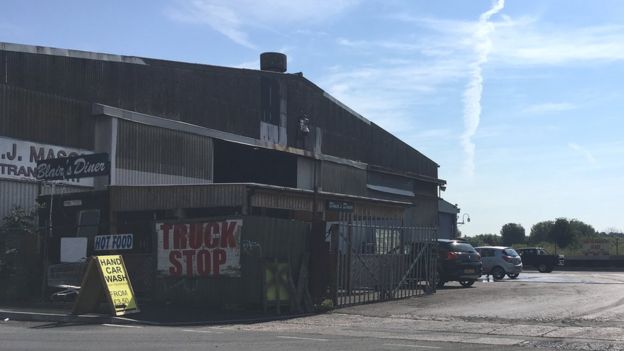
Mustafa was worried about how long the application process was taking, his family say.
Abdalaziz said: "I always said to him, 'calm down, don't worry about waiting'.
"People who try to come to the UK often spend 10, 15 years.
"His mum told me to look after him. She told me young guys do silly things."
Six months before his death, Mustafa was moved to the Allt-Yr-Yn suburb of Newport, where he was given a room in a shared house run by a private firm for the Home Office.
He was living there while his final application was considered.
Like the roughly 500 other asylum seekers in Newport, he waited.
But he also made friends with people at a local charity, The Sanctuary, which supports local migrants.
There he helped translate for other asylum applicants and worked on the centre's allotment, digging vegetables in his distinctive white trousers.
Project manager Sarah Croft said: "We had only known Mustafa for six months, but he made a lasting impression on us. He was just the nicest, nicest young man.
"So helpful, so respectful, always positive. He integrated with all cultures and was willing to help anyone. He is very sorely missed at the moment. We're heartbroken."
Still, neither Mustafa's cousin, brother nor friends, had any idea he was working illegally.
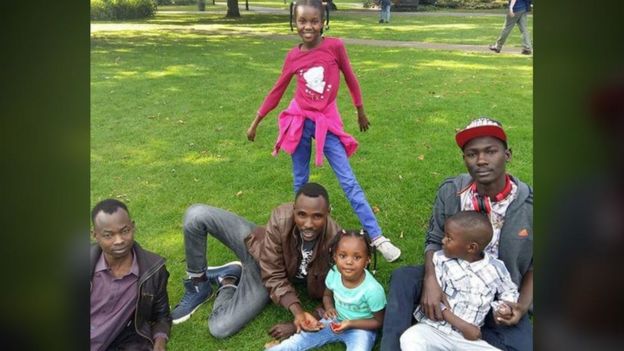 ABDALAZIZ OSMAN
ABDALAZIZ OSMAN
Abdalaziz said: "I always asked if he had money.
"He said he had money but he didn't tell me he was working.
"He was willing to help people. The last word he spoke to his mum was on the Friday and he asked her if she had a microwave or not.
"He was going to try and send the money. He tried to help her."
Abdalaziz said: "On the Saturday, I rang and rang him but his phone was off.
"I wanted to book a ticket for him to attend my graduation.
"On Sunday, I sent another Zaghawa person to see him because we are so many here.
"He went to his house but his room was locked. But on the Monday morning, he found out from a housemate."
The Independent Office for Police Conduct has opened an investigation, saying that during the early stage there was "no indication that anyone serving with Immigration Enforcement may have breached the standards of professional behaviour".
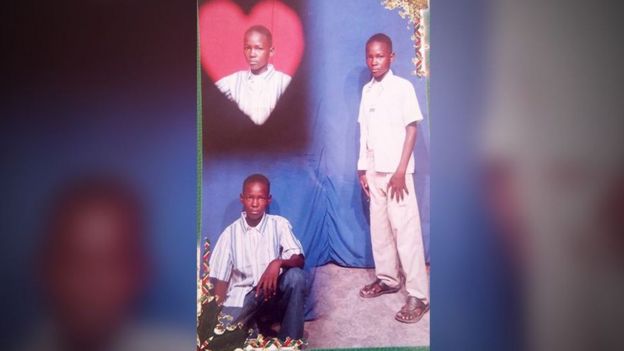 ABDALAZIZ OSMAN
ABDALAZIZ OSMAN
The Home Office will not comment on the immigration status of Mustafa or whether any criminal proceedings will be launched against the car wash.
But they did say their immigration enforcement "acted on intelligence" and attended Shaftesbury Hand Car Wash.
"During the course of the operation a 23-year-old Sudanese man fell from height and the operation was suspended," said a Home Office spokesperson.
"Officers at the scene performed CPR until paramedics arrived. The man was transferred by ambulance to hospital, where he later died. Our thoughts are with his family.
"As is the case with any death during the course of a law enforcement operation, the police have been informed and the matter referred to the Independent Office for Police Conduct (IOPC) which is investigating.
"It would be inappropriate to comment while this investigation is ongoing."
A coroner has said an inquest will be opened "at some point" in the future.
But politicians and campaign groups have reacted angrily.
On 9 July, around 60 people attended the Justice for Mustafa protest, organised by detainee support group SDS outside the Home Office in London.
Bethan Sayed, Plaid Cymru Assembly member for South West Wales, said: "I think it's appalling that someone died in this way.
"Obviously, asylum seekers are not allowed to work, but if officers knew he was working, they could have approached this in an entirely more humane way.
"I know refugees in the Swansea area and some of them are waiting six, seven years for the Home Office to make a decision."
Eyewitness Lyndon Saunders, 70, from Newport, who was waiting for his van to be cleaned, too has a view.
He said: "If it had been handled differently, maybe he'd still be alive. It was very heavy-handed and dramatic, like something from Starsky & Hutch.
"I feel so, so sorry for the boy and his family."
- Destitute asylum seeker takes his own life
- Inquiry to look at immigration centre
- Highs and lows of refugee family
The owner of Shaftesbury Hand Car Wash in Newport has refused to comment and the business remains open.
Now it is left to Mustafa's friends and family to rebuild their lives without him.
Yet they too are angry.
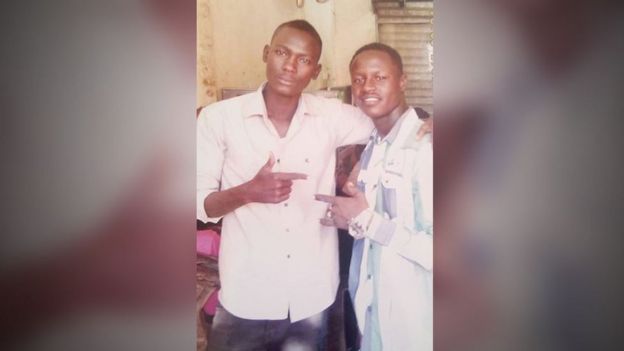 ABDALAZIZ OSMAN
ABDALAZIZ OSMAN
Abdalaziz said: "It's unbelievable.
"If this was Sudan, you would expect this to happen, but not here."
Ahmed added: "When everyone was told he was dead, no one believed it.
"Everyone cried. My mother is still crying.
"It's very hard to have the loss of a young brother - only 23. I feel so sad.
"I have a lot of questions.
"Something wrong [has] happened."
Wales
Heatwave crisis summit for farmers
- 25 July 2018
- Wales
Call for disabled-friendly playgrounds
- 25 July 2018
- Wales
Call for "normal" organ donation talks
- 25 July 2018
- Wales

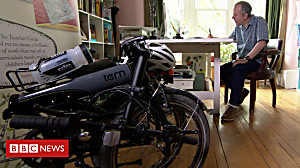
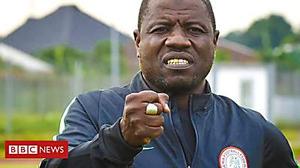
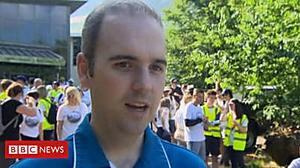
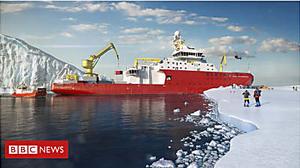
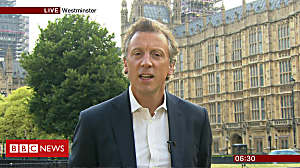

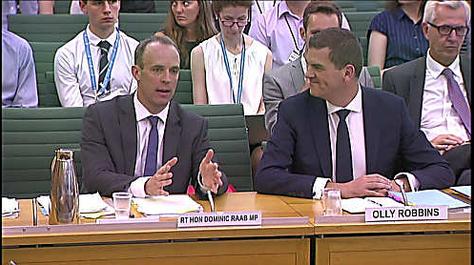
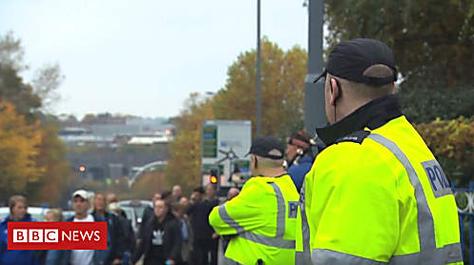

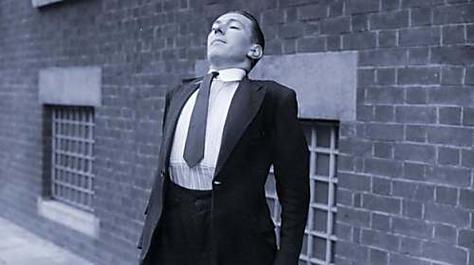
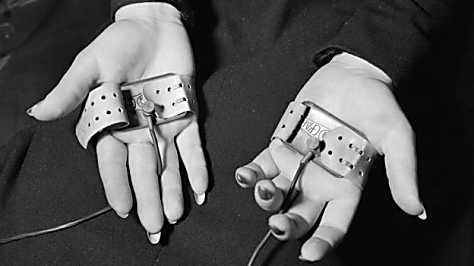
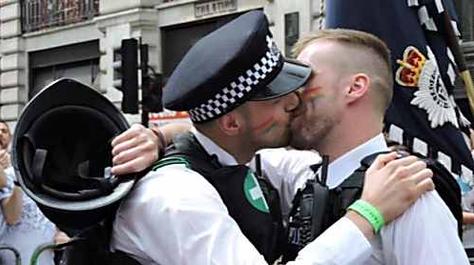
No comments:
Post a Comment